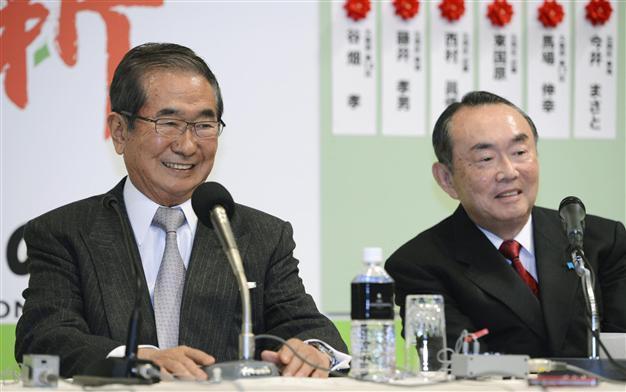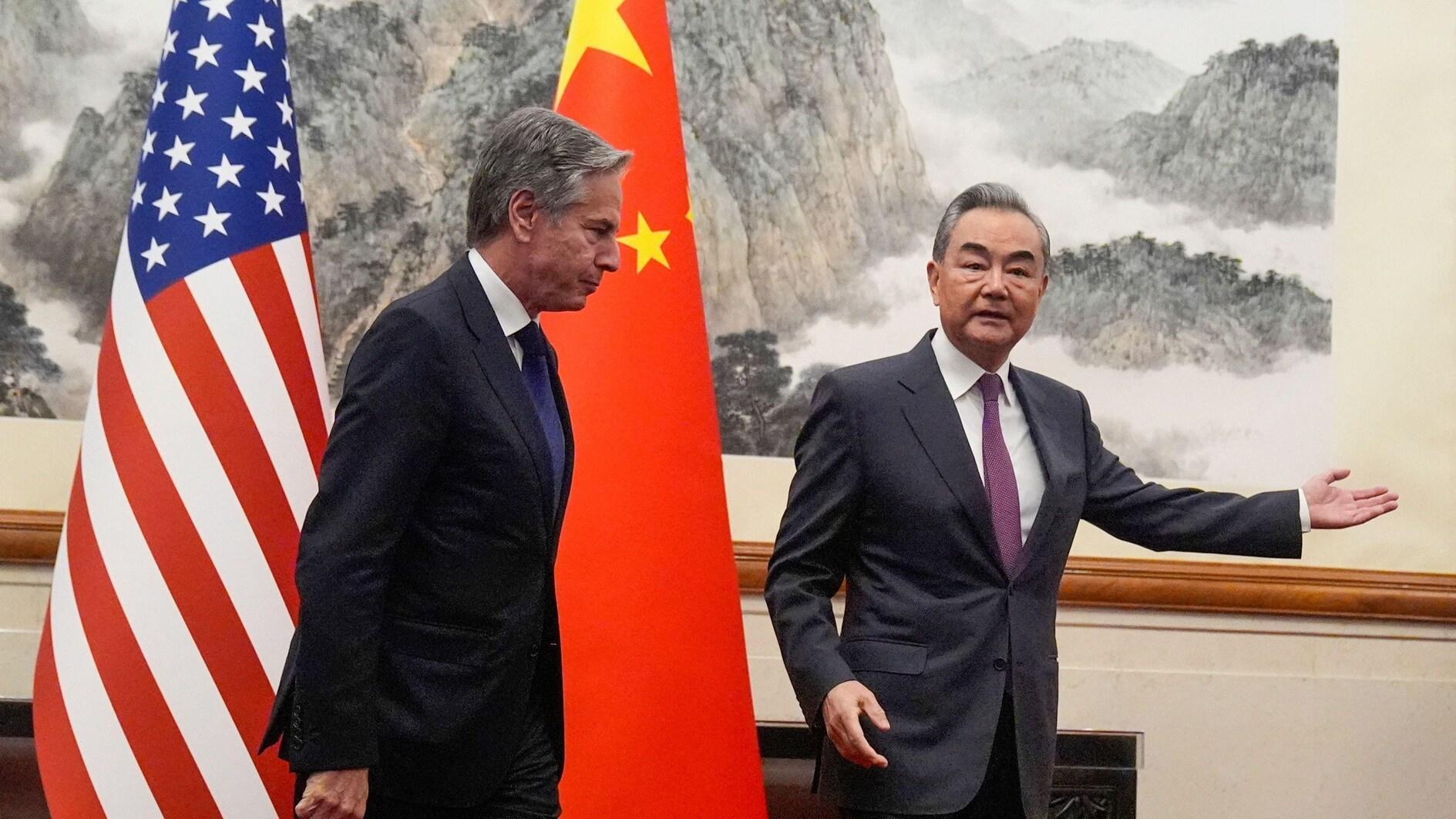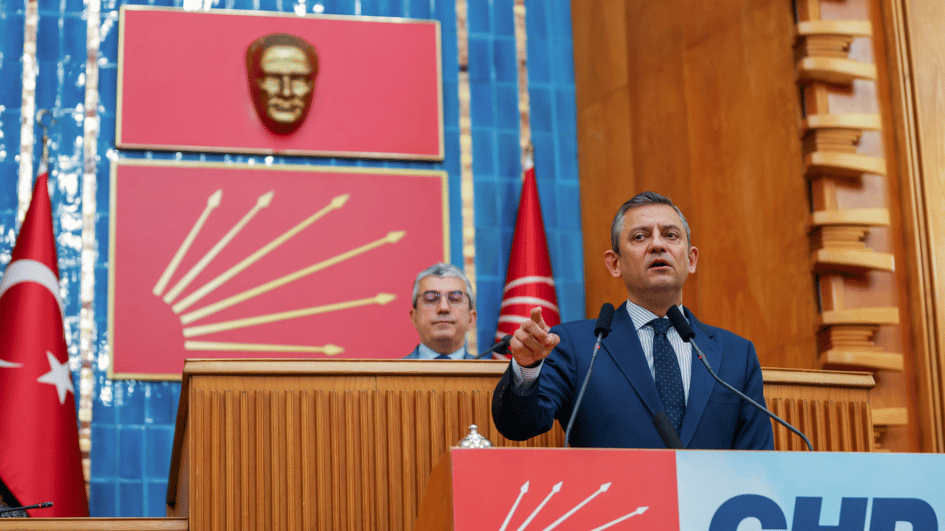Conservatives win Japan poll: broadcasters
TOKYO - Agence France-Presse

Right-leaning Japan Restoration Party co-leader Shintaro Ishihara, left, smiles after learning many of his party members including himself won parliamentary elections in Tokyo Sunday, Dec. 16, 2012. AP photo
Japan's conservative opposition swept to victory in polls Sunday, broadcasters said, in an apparent shift to the right as tensions rise with China and the economy continues to stumble.The long-governing Liberal Democratic Party led by the hawkish Shinzo Abe looked set to have secured a handsome majority in elections for the powerful lower house of parliament.
Voters appear to have abandoned Prime Minister Yoshihiko Noda three years after his Democratic Party of Japan (DPJ) promised a change from the more than half century of almost unbroken LDP rule.
NHK, citing forecasts based on its own exit polls, said the LDP was likely to win 275 to 310 seats in the 480-seat lower house, against 55 to 77 seats to DPJ.
New Komeito, LDP's coalition partner, is likely to win 27 to 35 seats, NHK said.
That could give the pair a more than two-thirds majority in the powerful lower house, enough to override the upper house, in which no party has overall control.
"The LDP sweeps to victory; Abe administration to start," the online edition of the Nikkei newspaper said in a banner headline.
Nationalist former Tokyo governor Shintaro Ishihara, whose bid to buy disputed islands provoked a fierce diplomatic showdown with China, was also headed to parliament, NHK said.
Ishihara, who leads the populist Japan Restoration Party, appeared to have secured one of 180 seats up for grabs in the proportional representation section.
Abe, whose brief stint as premier in 2006-7 ended ignominiously, campaigned on pledges to right Japan's listing economy, which has suffered years of deflation, made worse by a soaring currency that has squeezed exporters.
"It's time to put an end to the confusion and doldrums of three years and three months," Abe said Saturday, referring to the stint in power of Noda's DPJ.
He has also pledged to raise spending on infrastructure projects at a time when large parts of the tsunami-ravaged northeast have yet to see significant rebuilding following the March 2011 catastrophe.
The collapse of an ageing highway tunnel that claimed nine lives earlier this month lent weight to his calls, which have been criticised by opponents as a return to the LDP's "construction state" of the last century.
Public unease about a worsening security environment -- North Korea lobbed a rocket over Japan's southern islands last week and China sent a plane into Japanese airspace -- apparently bolstered Abe's cause.
He has promised to strengthen defences and revitalise a security alliance with the United States that is widely thought to have drifted under Noda's party.
Parliament will be called to session as early as December 26th to name Abe as the new prime minister, the Nikkei newspaper said.
"Mr Abe is expected to form his cabinet on the same day," the Nikkei said.
"He will issue his plan to draft an extra budget by the year-end as well as a broad direction for the next fiscal year's budget before closing the extraordinary Diet session on December 28," the Nikkei said.
In an evening that looked set to be a fairly miserable one for Noda, TV Asahi reported at least two of his ministers would lose their seats.
Internal Affairs Minister Shinji Tarutoko and Education Minister Makiko Tanaka appeared to have lost their constituency seats. It is possible that they may win through on the proportional representation part of the b
ballot.
Noda's own fate as leader of the much-diminished DPJ also looked in doubt, reports said, despite his apparently having retained his seat.
Kohei Otsuka, a senior party official told NHK: "In general, (Noda) can't help but take responsibility for (the defeat). But he will consider how to take his responsibility."
















